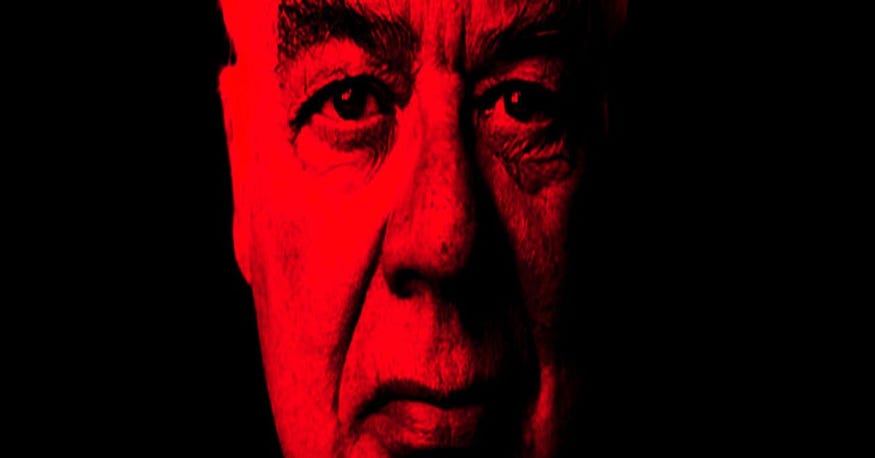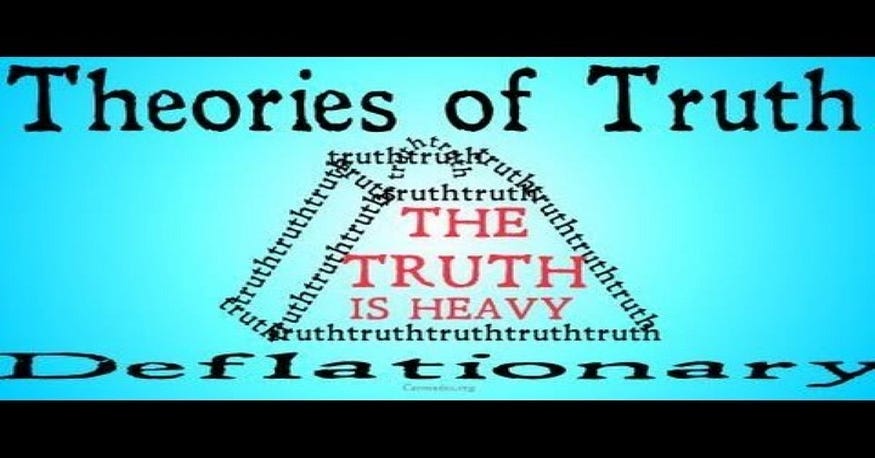“What is truth?” Now take Rorty’s deflation: “The word ‘truth’ is simply a compliment paid to sentences seen to be paying their way.”

“What is truth?”
In response to that question, let me quote the American-English philosopher Gordon Park Baker (1938–2002). In his ‘φιλοσοφια: εικων και ειδος’ (which can be found in Philosophy in Britain Today), Baker wrote:
“We should [] make serious efforts at raising questions about the questions commonly viewed as being genuinely philosophical. Perhaps the proper answers to such questions are often, even if not always, further questions!”
To add something to Baker’s words.
All sorts of (possibly bogus) questions have been deemed to be profound, deep and worthy of very serious thought. However, perhaps it’s just as important — and indeed just as philosophical — to ask questions about these questions. Or as Gordon Baker again put it:
“The unexamined question is not worth answering.”
And Baker added:
“To accept a question as making good sense and embark on building a philosophical theory to answer it is already to make the decisive step in the whole investigation.”
So instead of asking “What is truth?”, perhaps we should really ask this question:
With the ancient question “What is truth?”, is the property (or thing) that is truth simply assumed in the very asking of that question?
What’s more, vast tracts have been written on truth, the “nature of truth” and the word “truth”. Yet the American philosopher Richard Rorty (who died in 2007) appeared to dispatch this endless debate by simply saying that (among other things) the word ‘“true” doesn’t “need[] a definition”.
To conclude this short introduction.
As with literally all philosophical positions and theories, there are, of course, many arguments against Rorty’s general stance on truth (or on the word “true”). Yet it should be noted that this essay is simply an attempt to put his position in both a convincing, critical and fair manner.
William James Defines “True”

The main objective which many 20th century philosophers set themselves was (simply?) to define the word “true”. Yet let’s go back in time here and start with the American philosopher and psychologist William James (1842–1910).
Richard Rorty puts James’s position in the following way:
“If we have the notion of ‘justified’, [then] we don’t need that of ‘truth’.”
Rorty went on to claim that James believed that the word
“‘[t]rue’ must means something like ‘justifiable’”.
So was William James setting up a literal identity between truth and justification? Alternatively, was James arguing that the word “true” means (or is synonymous with) “[that which is] justified”? Perhaps both?
Let’s now spell James’s possible position out:
A true statement is a statement which has been justified (or whose utterance is justifiable).
As can be seen, the statement above is about (other) statements.
So what about the the thing (or the property) truth?
Well, we can bite the bullet and argue that truth is indeed a property; but only a property of certain statements. Yet even this isn’t really the case because the predicate “is true” or the word “true” is (as it were) attached or applied to certain statements — it’s not an actual property of those statements. (This is vaguely equivalent to putting a dress on a mannequin: the mannequin and the particular dress don’t belong together.) Thus outside the context of statements we deem to be true (or which have been justified), there is no property that is truth.
Despite all the above, Rorty believes that James was in “error” when he continued:
“The error is to assume that ‘true’ needs a definition [].”
In other words, Rorty wasn’t taking truth to be a thing or even a property. Instead, “truth” (or “true”) is a word which human beings use about certain statements. So beyond what human beings say about these statements, there is no thing (or property) which is truth.
More precisely, when we say that statement S “is true”, this is simply an affirmation of statement S. That said, we may still believe (to get back to James’s position) that statement S is justified (or justifiable) and therefore we’ll go straight ahead and affirm it..
Yet we needn’t necessarily be committed to James’s stress on justification, let alone be committed to believing that the word “true” can be substituted with the word “justified”.
Rorty then went on to claim that idealists too made a similar (or the same) error about the word “truth” (or the thing/property truth). He wrote:
“This was a form of the idealist error of inferring from
‘We can make no sense of the notion of truth as correspondence’
to
‘Truth must consist in ideal coherence.’ [].”
Of course, if there’s no thing (or property) truth in the first place, then truth can’t be “ideal coherence” either. And the notion of “truth as correspondence” (which idealists had a problem with) fails too — for exactly the same reason.
So there are two things which should be distinguished here:
(1) It is certain statements (i.e., not facts, properties, things, etc.) that are true. (Truth isn’t a thing or a property separate from certain statements.)
(2) By which criterion (or criteria) do we decide that statements are true — even if we accept that truth is not a thing or a property?
The Deflation of Truth

Despite all the above, Rorty’s point is completely deflationary as regards both truth and philosophy as a whole. He didn’t want a new analysis or definition of the word “truth” (or “true”). And he didn’t want a metaphysical account of truth. Rorty believed all these demands and pursuits had become a waste of time — after all, he was a pragmatist.
Despite that, Rorty did still have a philosophical position. And that position was a fairly old one (if re-expressed by Rorty). Thus:
“Truth is simply a compliment paid to sentences seen to be paying their way.”
Of course Rorty’s position still isn’t really about the property (or thing) that is truth.
So is it simply about the word “truth” (or “true”)?
Yes. It’s (in a strong sense) a sociological and philosophical analysis of how we actually use that word in everyday — and perhaps also esoteric (even technical) — circumstances.
This means that all we need to do is simply account for how people (or communities) use the word “true” (or “truth”) to refer to certain statements in certain circumstances.
Yet can’t we still ask questions about both truth itself?
And can’t we also ask why people (or communities) use the word “true” in such circumstances?
Of course we can.
Thus:
Why does person P (or community C) say that statement S is “true”?
Rorty might well have replied:
That question can easily be answered without assuming that the word “true” (or “truth”) refers to a metaphysical or sematic thing (or property). That is, statement S is deemed to be true by person P (or community C) in this particular circumstance for this or that reason.
In that case, then, the word “true” (or “truth”) isn’t actually being defined at all. Instead, why person P (or community C) is using the word “true” (about statement S) is being explained. So this is a sociological, philosophical and — perhaps partly — psychological explanation as to why person P (or community C) uses the word “true” about statement S.
In other words, the word “true” isn’t being defined at all.
In addition, the existence of a metaphysical or semantic thing (or property) that is truth certainly isn’t being either assumed or accepted by Rorty.
Of course Rorty’s stance on truth (or on the word “truth”) fits very well with the deflationary theory of truth. And in that broad set of theories of truth, it also squares fairly well with the redundancy theory of truth, the performative theory of truth, the consensus theory of truth, the pragmatic theory of truth and with normative theories of truth… But a word of warning here. Before the reader gets too nauseous with all these different theories of truth, it must be noted that not all them are rivals and they don’t all contradict each other. For example, the deflationary theory of truth can sit happily side-by-side with the redundancy theory of truth. And, of course, the consensus theory of truth shares a lot with the pragmatic theory of truth. Indeed it may even be possible to endorse all these theories of truth at one and the same time!
Conclusion

So, in all these philosophical definitions of the word “true” (or “truth”), it was always assumed — from the very start — that there is a thing (or a property) that is truth. These philosophers believed that we must get to know what truth is. Alternatively, we must offer a conclusive, definitive and final definition of the word under dispute.
Yet it’s very odd (at least on a Rortian reading) that despite the multitudinous — and often mutually contradictory — definitions of “truth” (or “true) and metaphysical accounts of truth itself, all these philosophers have always simply assumed that truth must have always been there — waiting to be discovered and properly accounted for?
As Gordon Park Barker said at the beginning of this piece: perhaps this philosophical fixation was largely down to the simple fact that the question “What is truth?” has always been a main part of the philosophical diet.










No comments:
Post a Comment